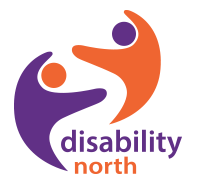The Department for Work and Pensions (DWP) has halted all face-to-face assessments for sickness and disability benefits for the next three months, in a “precautionary” measure it says will protect disabled people from unnecessary risk of exposure to coronavirus.
The move will affect those claiming personal independence payment (PIP) and employment and support allowance (ESA), and some claimants of universal credit (UC), as well as recipients of industrial injuries disablement benefit.
It applies to those being reassessed as well as new claimants.
Those with a face-to-face assessment scheduled do not now need to attend and will be contacted to discuss alternative arrangements, which could involve either telephone or paper-based assessments.
Claimants do not need to take any action themselves until they are contacted by DWP.
Among other measures taken by DWP, people who need to claim ESA or UC because of coronavirus will not be required to produce a fit note.
And claimants of out-of-work benefits who tell DWP “in good time” that they are staying at home or have been diagnosed with COVID-19 will not be sanctioned, ministers confirmed.
Justin Tomlinson, the minister for disabled people, will be among ministers and government officials facing questions suggested by members of the public, at a Commons evidence session on Wednesday (25 March).
The Commons petitions committee has organised the session after emailing more than one million people who have previously signed parliamentary petitions about coronavirus to ask them for questions they would like to put to the government about its strategy for dealing with the virus.
The committee received an “unprecedented” 45,000 questions as a result of its appeal.
Among those answering questions will be Dr Jenny Harries, deputy chief medical officer for England; Nick Gibb, the minister for school standards; and Tomlinson.
Catherine McKinnell, chair of the petitions committee, said: “The impact of this virus – both in the UK and globally – cannot be underestimated, and we will continue to hold this government to account on behalf of petitioners to ensure it is effective in responding to the coronavirus and the impact it will have on the lives of every one of us.”
Meanwhile, the Care Quality Commission (CQC) has halted routine inspections of health and social care services during the COVID-19 pandemic.
During the pandemic, it said, its primary objective will be supporting service-providers to keep people safe “during a period of unprecedented pressure on the health and care system”.
Ian Trenholm, CQC’s chief executive, said: “It may still be necessary to use our inspection powers in a very small number of cases when there is clear evidence of harm, such as allegations of abuse.
“In adult social care, our inspectors will also be acting as a support for registered managers, providing advice and guidance throughout this period in the absence of a single national body equivalent to NHS England.
“We are talking to social care providers about how to most effectively collect information from them to ensure that the government has a clear picture of the impact that COVID-19 is having on the sector.”
Meanwhile, a growing number of conferences and other events that were due to take place in the coming months have been postponed or cancelled as a result of the coronavirus pandemic.
Among them is the TUC Disabled Workers’ Conference, which was due to take place in Bournemouth in May. It is not yet known whether it will be postponed, cancelled, or held at some point in a different format.
The Reclaiming Our Futures Alliance (ROFA) national conference, which had been due to take place in Manchester on 22 April, will no longer go ahead as planned.
ROFA is considering holding at least part of the event remotely to allow disabled activists and disabled people’s organisations to engage in post-election campaign planning.
Inclusion London has postponed all its face-to-face training and events that were due to take place between 18 March and the end of June, although some events and training will now take place online.
And four consultation events that were set to hear disabled people’s views on proposals to reopen the Independent Living Fund to new claimants in Northern Ireland have been postponed until later in the year.
*Sources of information and support during the coronavirus pandemic include the following:
The Department of Health and Social Care
National Survivor User Network
19 March 2020. News provided by John Pring at www.disabilitynewsservice.com

